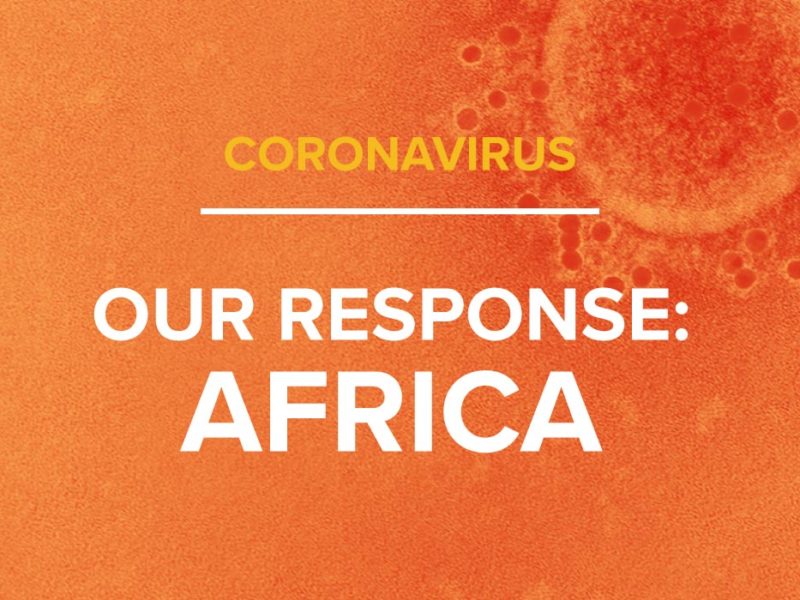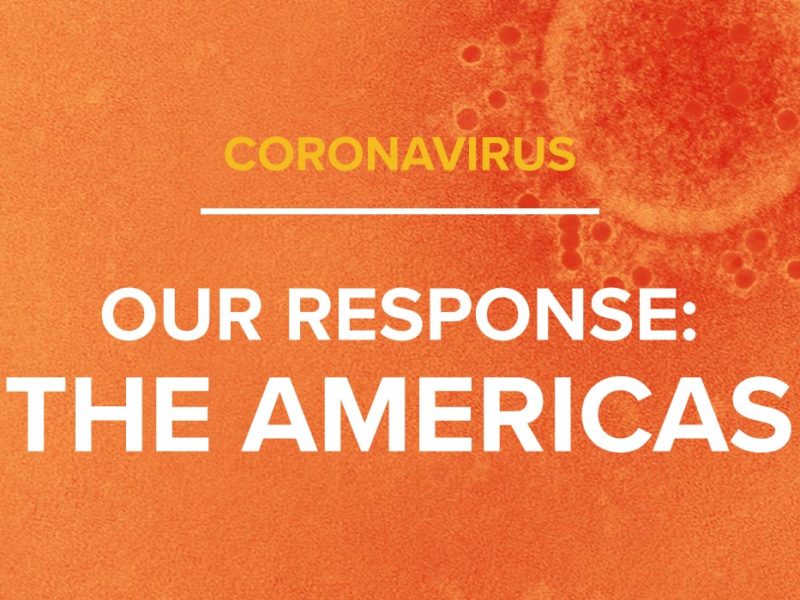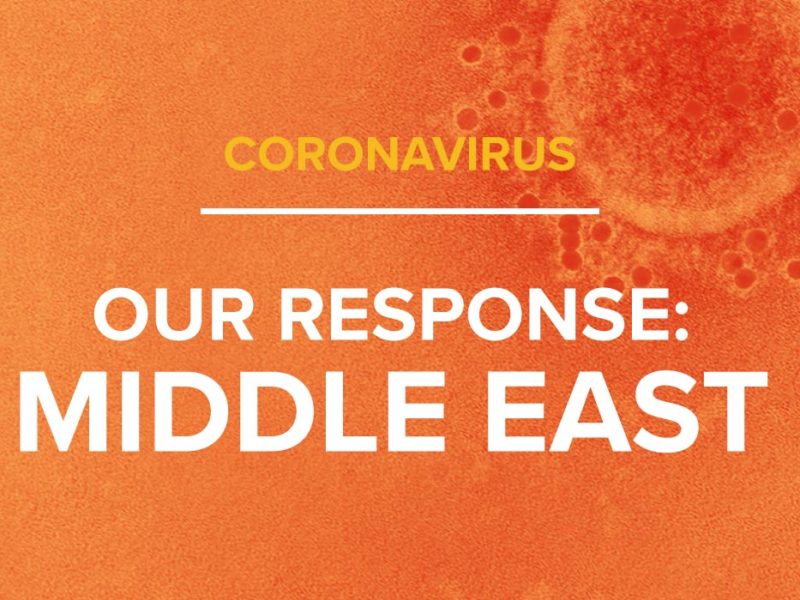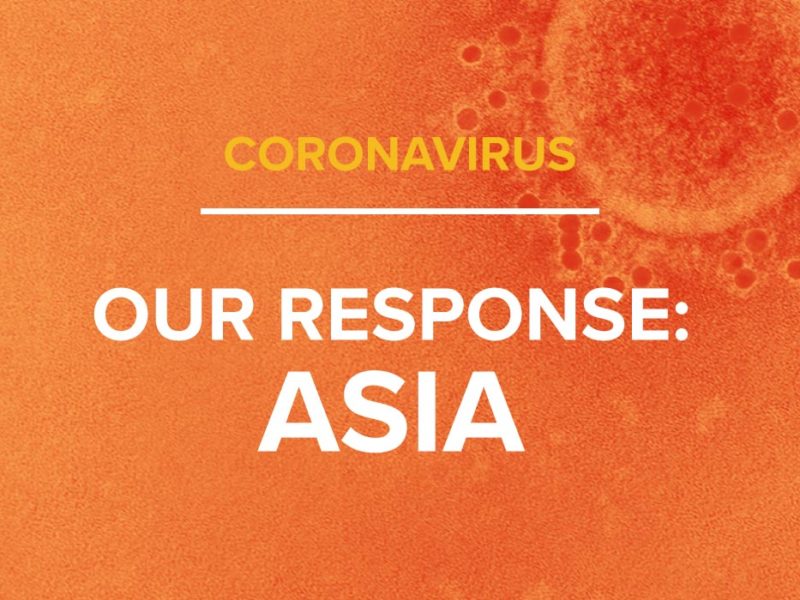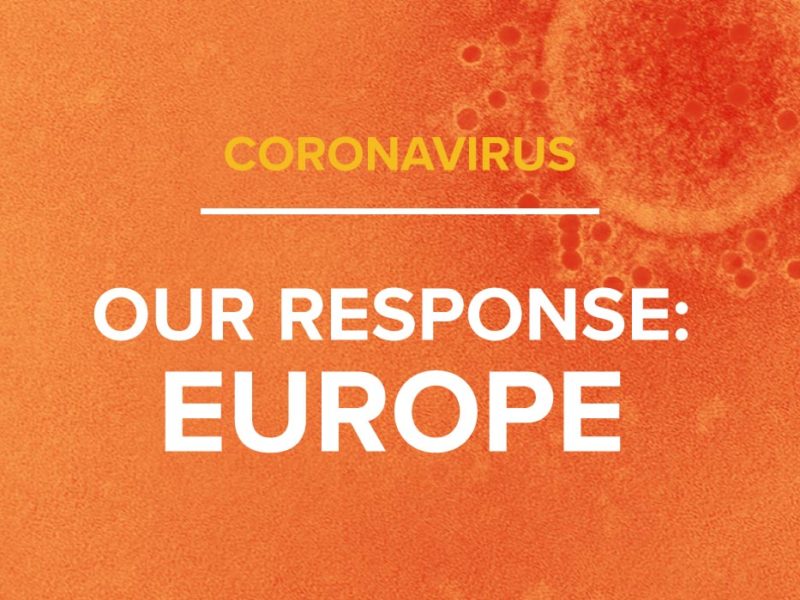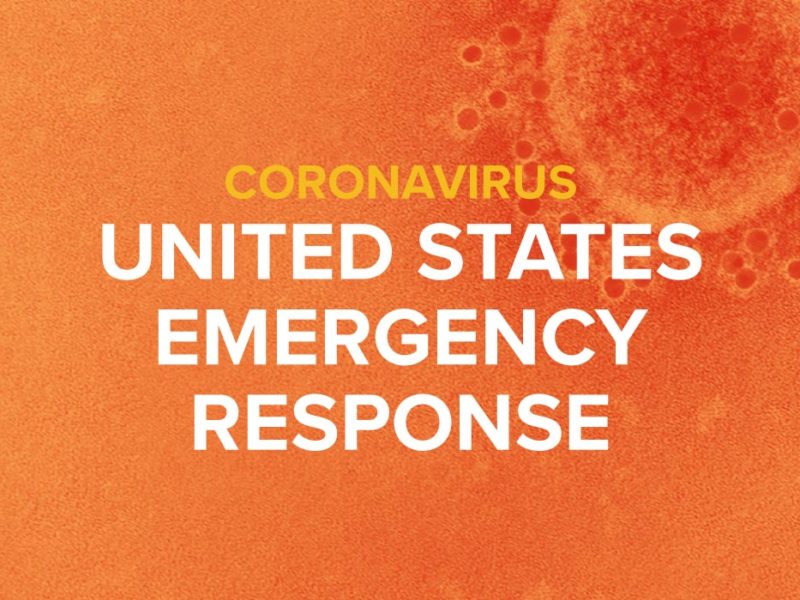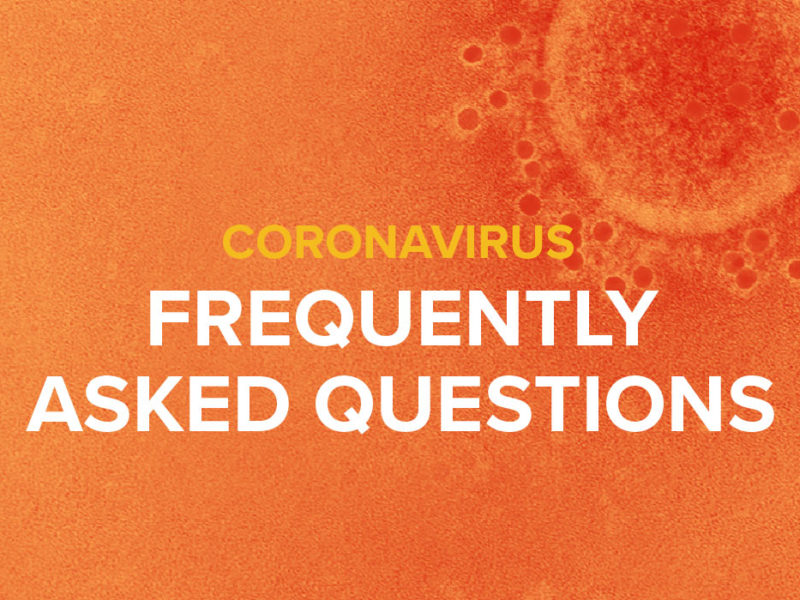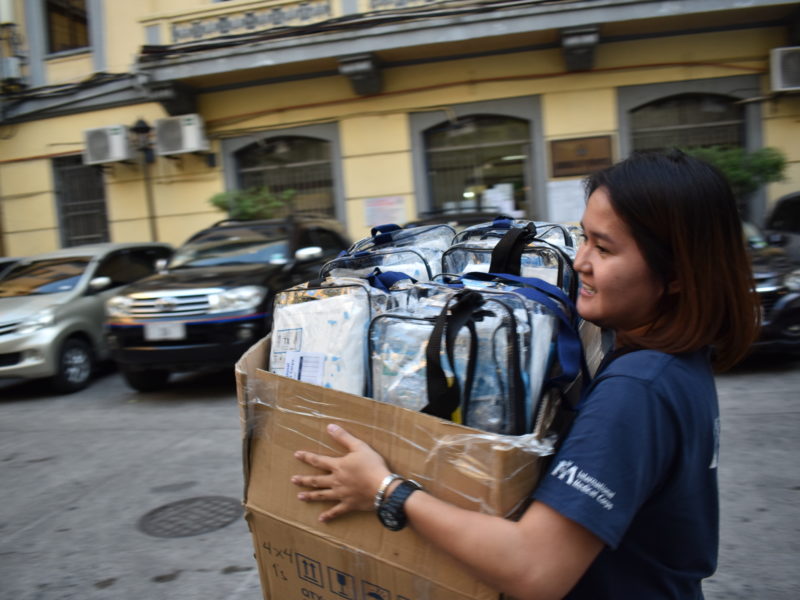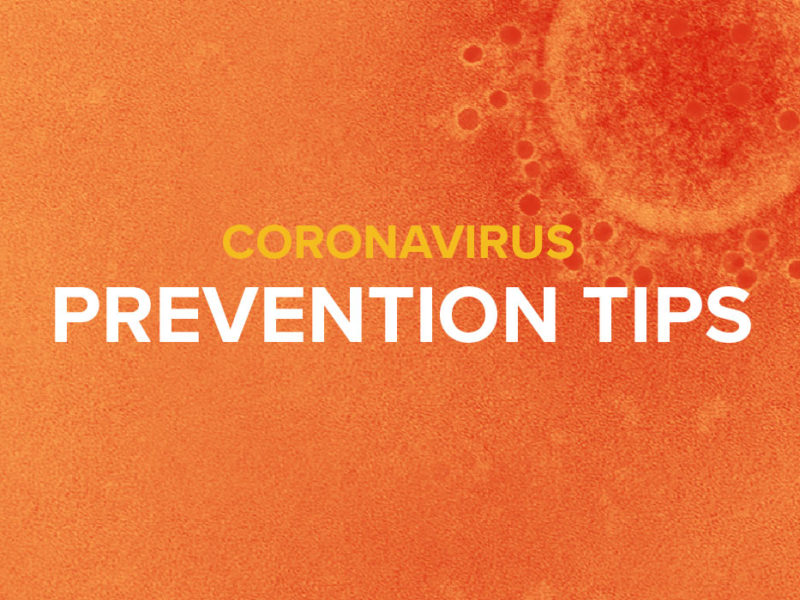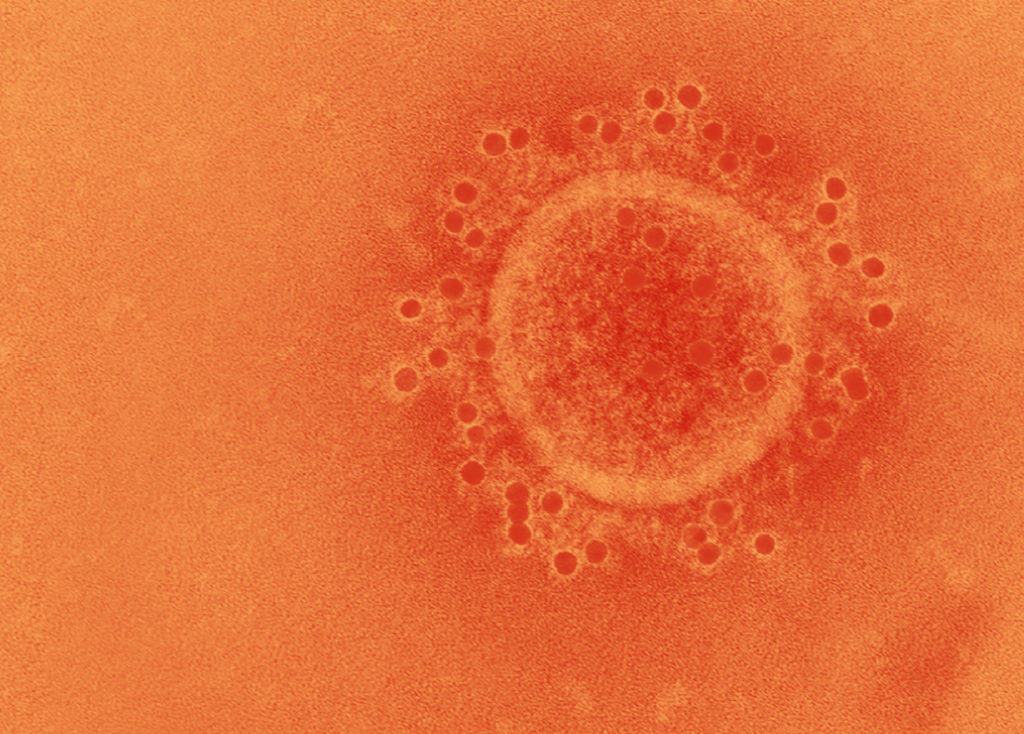
We Are Responding to
Coronavirus (COVID-19)
Since the World Health Organization (WHO) declared the COVID-19 outbreak a pandemic on March 11, 2020, cases of coronavirus have continued to spread rapidly throughout the world. We’re working globally to limit the spread of the virus, treat those affected by it and help with vaccination.
Working closely with international, national and local aid and health organizations, International Medical Corps is providing medical expertise, equipment, training, and triage and treatment services. We have designed a multi-pronged approach to ensure that at-risk countries and regions are able to prepare for and respond to outbreaks of COVID-19, and to vaccinate against the virus. Priority response activities include:
- Training and capacity building to protect frontline health workers and staff
- Prepositioning and deploying medicines, equipment and supplies, including personal protective equipment (PPE) and cold-chain equipment
- Deployment of screening and triage stations, and case management
- Community outreach and engagement, including vaccination campaigns
- Epidemic response teams
192
Countries and regions with suspected or confirmed cases
676,609,955
Confirmed cases as of March 10, 2023
6,881,955
Deaths worldwide as of March 10, 2023
Global Response
International Medical Corps is building upon existing local response capabilities and integrating our response with local and regional emergency programs of WHO, CDC, ministries of health, emergency operation centers and others to ensure coordinated and complementary treatment, training and vaccination activities—while building local capacity to address this and future outbreaks. In the US, International Medical Corps is working closely with state and local authorities and with federally qualified health centers (FQHCs) to implement treatment, training and vaccination services as needed.

Training and Capacity Building
Training and capacity building for health workers in at-risk countries is critical to slow and address the spread of the coronavirus. The countries most at-risk for deadly potential outbreaks are those with limited health infrastructure and capacity to meet the needs of this rapidly spreading disease—such as the Philippines, Iraq, Afghanistan, Democratic Republic of the Congo (DRC), Nigeria and Ethiopia.
To meet the most critical gaps of each at-risk country, International Medical Corps is 1) determining the highest risk factors to contracting the disease, based on the specific context; 2) delivering infection prevention and control (IPC) training modified to that local context; 3) targeting health facility staff as training recipients, helping to keep health workers safe and health facilities operational; and 4) incorporating a “training of trainers” approach that will equip select health workers to train others, exponentially increasing the number of people equipped to respond to the outbreak.

Prepositioning and Deploying Medicines, Equipment and Supplies
With a global shortage of personal protective equipment (PPE)—specifically N95 masks—this support is critical, as the costs of these supplies are rising exponentially. The shortage and rising costs of supplies are not only affecting the coronavirus response, but are also limiting the availability of supplies to fight other contagious diseases, such as Ebola. Moreover, there is a rising concern for the supply of medications and vaccines, as some countries implement restrictions on exports of pharmaceuticals.
International Medical Corps is leveraging its longstanding collaboration with FedEx and its global supply-chain network to procure and deploy the medicines, medical supplies and equipment that health facilities and frontline health workers need. Supplies include face masks, gloves, goggles and gowns—critical as PPE for health workers—as well as other items, including the refrigerators and other cold-chain equipment required to keep vaccines preserved until they’re ready to be administered.

Deployment of Screening and Triage Stations, and Case Management
When the situation demands, International Medical Corps directly supports the implementation of IPC measures in at-risk health facilities and refugee camps throughout the 30 countries where we work. Building on the screening and referral unit (SRU) model developed in the 2014-2015 Ebola outbreak—a model called “near perfect” by the CDC—International Medical Corps’ Emergency Response Team deploys Coronavirus Advanced Medical Posts (CAMPs). These screening and triage centers at health facilities, transit hubs, hospitals or at entry points of refugee and IDP camps help with screening and isolation of individuals with at-risk symptoms. Key features of International Medical Corps’ screening and triage centers include:
- Triage Point: for screening and identification of patients with coronavirus symptoms
- Health Post: for consultation and stabilization of severe cases
- Dispatch Post: for ambulances to transfer patients in need of hospitalization
- Healthcare Waste Management Zone: for safe storage and safe disposal of medical waste
International Medical Corps also is providing case management support for testing for, treatment of and vaccination against coronavirus.

Community Outreach and Engagement
The emergence of coronavirus has resulted in the distribution of misinformation (called an “infodemic” by some) and instances of stigma. These can contribute to additional health concerns, because they may lead individuals to hide their illness and avoid seeking healthcare immediately, discouraging healthy behaviors. Community outreach and engagement are critical not only to address stigma of the disease, but also to encourage proper health-seeking behavior, including getting vaccinated when vaccines are available in a community.
International Medical Corps’ community outreach messaging includes information on proper hygiene practices to prevent the spread of coronavirus, as well as encouraging community surveillance, and supporting referral options for individuals with symptoms, enabling them to seek healthcare quickly. International Medical Corps also has a long history of addressing longer-term mental health and psychosocial support needs during conflict, disaster and outbreaks of disease—especially important during the periods of isolation that have accompanied the travel restrictions and other limitations imposed by the pandemic.

Epidemic Response Team
International Medical Corps maintains an Epidemic Response Team comprising clinicians, logisticians and sanitation experts on standby for the World Health Organization (WHO) and ready to deploy when requested. This team includes former CDC epidemiologists and public health experts who have worked throughout the international NGO and governmental spectrum, and who have experience working on outbreaks of infectious disease, including SARS, MERS, H1N1, flu and Ebola. The team remains flexible and ready to deploy globally to provide surged medical support in health facilities, hospitals and communities to address the spread of coronavirus, including vaccination campaigns, in coordination with the WHO and local ministries of health.
